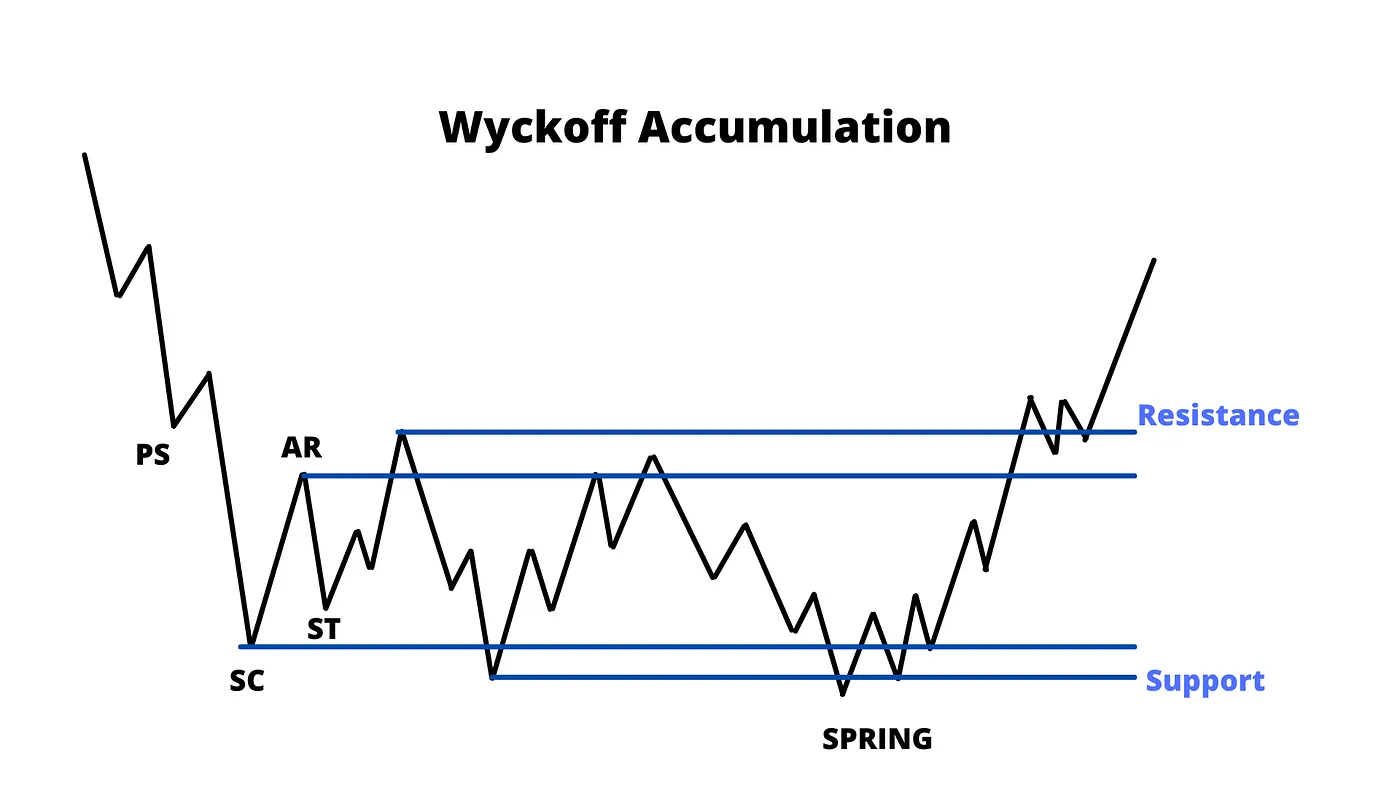Fundamentals of
Wyckoff Method
| Module name | Fundamentals of Wyckoff Method |
| Module code | |
| level | |
| Pre-requisite | Market Trends – Resistance/Support – Trading Experience |
| Duration | 4 weeks |

Module summary
Module outline and aims
Students will learn how to detect price ranges, the reversal points in the market, and distribution/accumulation ranges. This module aims to reduce your losses significantly and make you capable to open a position at the earliest time of reversal.
Content Outline
- Trending and non-trending environments
- Accumulation and distribution zones
- Variety of accumulation and distribution structures
- How to spot accumulation and distribution zones
- Reversal points in the market and start of trends

Teacher: Ata Ashouri
Former Commodity trader. Currently Proprietary Trader and Asset manager at the School Of Investing. I spent 4 years working professionally with an asset management firm in Switzerland dealing in a wide array of assets from physical and paper. I have spent a further 8 years as a private trader and investor.
What will I be expected to achieve?
On successful completion of this module, you will be expected to be able to:
Knowledge and understanding
Reason the onset of accumulation and distribution zones
Skills
Accurately detect the accumulation and distribution zones in real time
Values and attitudes
Keep patience for the price to complete non-trending zones before entering positions


How will I learn?
A combination of lectures, problem-solving sessions, coursework and self-study. Lectures are held on Discord and are used as a means of covering the essential principles and analysis techniques in sufficient detail to allow you to achieve the Knowledge and Understanding learning outcomes for this module at a basic level.
The basics of problem solving are covered in lectures to place the knowledge into context but the main learning activity to achieve the Cognitive/Intellectual and Subject-Specific Skills is private study, supported by tutorial classes and staff surgery hours. Transferable Skills, Values and Attitudes are acquired through timely participation in the learning activities, in class problem solving and coursework.
In addition to the taught elements of the module there will be the need for private study. This time will be spent working on background reading, revision of notes, work on possible exercise problems and coursework. Key learning and teaching resources will be put on the website.
Teaching pattern
| Teaching component | Lectures | Tutorials (Q&A) | On-Chart Activity | Totals |
| Contact hours (scheduled) | 5hrs | 6hrs | 5hrs | 16 |
| Self-directed study hours (independent) | 5hrs | 12hrs | 5hrs | 22 |
| Total student learning hours | 10 | 18 | 10 | 38 |


What type of assessment and feedback can I expect?
There will be a 30-minutes examination providing a controlled environment in which to assess some of the learning outcomes. Some skills are best assessed continuously; there will be two assignments.
Assessment pattern
| Assessment component | Assessment type | Weighting | Minimum qualifying Mark |
| Quiz | Oral exercise (on chart) | 25% | N/A |
| Final Exam | Oral exercise (on chart) | 75% | 50% |
Assessment criteria
Assessment Criteria are descriptions of the skills, knowledge or attributes you need to demonstrate in order to complete an assessment successfully and Grade-Related Criteria are descriptions of the skills, knowledge or attributes you need to demonstrate to achieve a certain grade or mark in an assessment. Assessment Criteria and Grade-Related Criteria for module assessments will be made available to you prior to an assessment taking place. More information will be available from the module leader.
Feedback on assessment
Students will expect to receive feedback on their assessment no later than 3 days after the assessment. In this module you will be helped to learn more effectively by receiving feedback on your performance in the tutorial sessions.
Assessment regulations
The Pass mark for the module is 50%. Any minimum qualifying marks for specific assessments are listed in the table above. The weighting of the different components can also be found above. If you fail the module, you have the option to resit the final assessment. This implies an additional 20% tuition fee.
